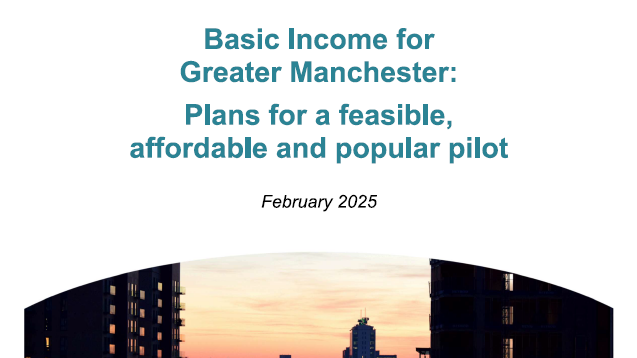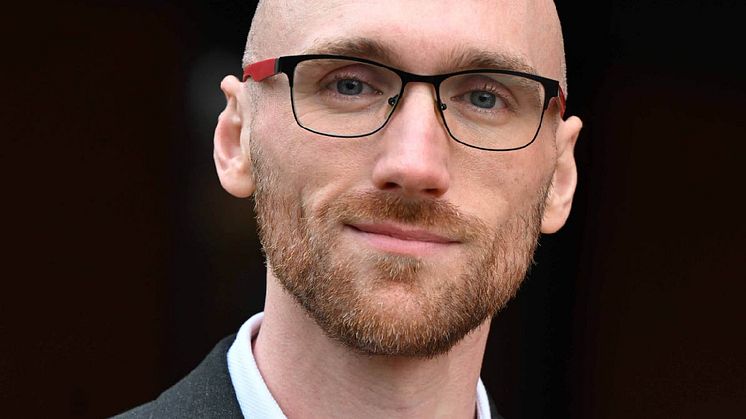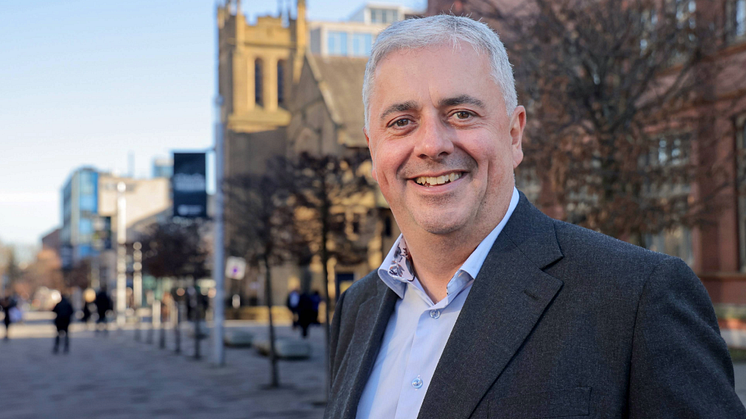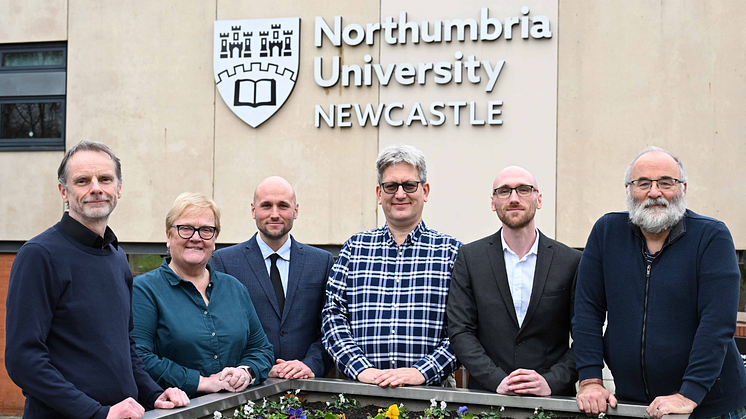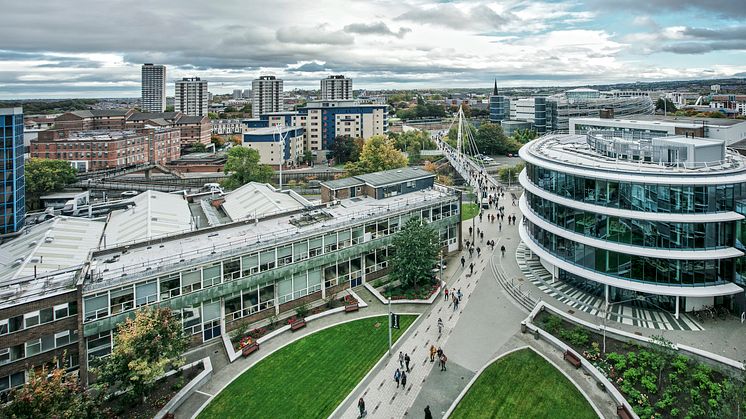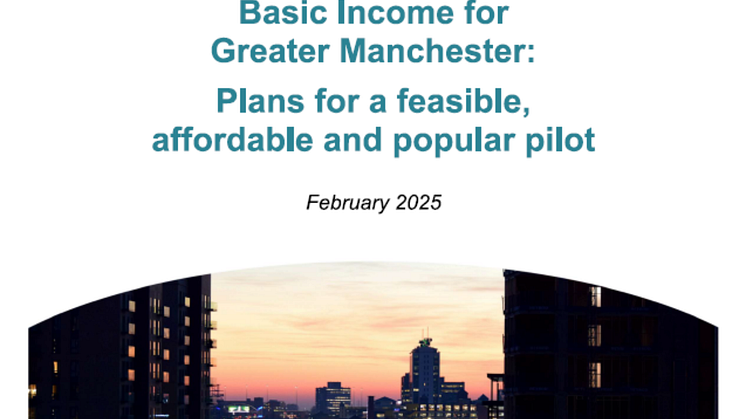
Press release -
Proposal launched for groundbreaking Basic Income pilot in Greater Manchester
A new pilot proposal has been launched for a groundbreaking scheme which experts say could eventually end absolute poverty in Greater Manchester, as well as improve the health and wellbeing of millions of people.
Led by academics from Northumbria University and campaigners at the UBI Lab Network, the new report outlines a pilot for a Basic Income that could eventually see a regular payment given to everyone in Greater Manchester, regardless of income, wealth or work.
The authors say if rolled out fully, such a monthly payment would create an ‘income floor’ nobody could fall below, ending absolute poverty in the city for good, improving the health and wellbeing of citizens, and making it easier for those on unemployment benefit to get back into work.
The proposal to pilot the idea has been instigated by UBI Lab Manchester, part of the UK-wide UBI Lab Network, a grassroots group that aims to explore the potential of Basic Income within the city. If taken forward, the pilot would initially involve hundreds of people who are homeless or at risk of homelessness in the area, providing a sense of financial security and creating a platform from which they can start to rebuild their lives.
Matthew Johnson, Professor of Public Policy at Northumbria University, Chair of the Common Sense Policy Group, and one of the authors of the report, said: “At a time in which ambition and vision is required more than ever, Greater Manchester stands out as a beacon of hope for progressive policy. Basic Income is a pragmatic, affordable, feasible and, most importantly, an overwhelmingly popular policy.
“It is popular because it deals with the root causes of today’s challenges: the financial insecurity that affects almost all of us, especially in the north. The proposals within this report are an opportunity for Greater Manchester to lead on national renewal by setting out a fundamentally transformative scheme that will capture Britain’s interest.”
Greater Manchester Mayor Andy Burnham has previously indicated his support for piloting a Basic Income. His 2024 re-election manifesto pledged to bring forward a Basic Income pilot in order to test whether a different, more preventative way of supporting people could lead to better use of public funds. Authors of the report, A Basic Income for Greater Manchester: Plans for a feasible, affordable and popular pilot, have sent their proposal to the Mayor directly, and are calling on him to take their groundbreaking pilot proposal to the Treasury.
The proposal
The proposed pilot of a Basic Income in Greater Manchester would initially target the region’s most vulnerable citizens: young people from deeply disadvantaged backgrounds who are experiencing homelessness or are at risk of homelessness.
The pilot would run over two years and would see each participant receive £1,600 per month. The cost for this would be £7.68m for 200 recipients, or £3.84m for 100 recipients.
The proposal outlines that the costs to run a pilot could be raised through a combination of central government support, public donations, reallocated service funding from the GMCA itself, and support from philanthropic organisations.
Briefing for MPs
On 27 February, the authors of the Manchester pilot proposal will host a briefing session for MPs within the Palace of Westminster on the potential transformative benefits of a Basic Income for Greater Manchester and the rest of the UK.
The team behind the Manchester Basic Income pilot proposal believe:
- it is more feasible and popular than alternatives, such as Minimum Income Guarantee and increases in Universal Credit
- it can produce valuable evidence around the impact of preventive policies on poverty
- it has the support of local communities and builds on similar pilots such as the Welsh Government’s Basic Income Pilot for Care Leavers
- there are clear pathways to funding a pilot of sufficient size without requiring revisions to tax codes
- this is an opportunity for progressive politicians to be brave and to demonstrate that big thinking can solve crises of insecurity
The Welsh Government recently carried out a two-year pilot of a Basic Income for young people leaving care. Each of the 500 participants, all aged between 18 and 20, received £1,600 per month from 2022-2024. Professor Matthew Johnson is part of the team evaluating this pilot. While the full results have not yet been released, preliminary results suggest this intervention has already demonstrated a positive impact on financial stability among an extremely disadvantaged group of people.
Dr Elliott Johnson, Vice Chancellor’s Fellow in Public Policy at Northumbria University, Impact Lead for the Common Sense Policy Group and one of the co-authors of the report who will speak at the briefing session for MPs, explained: “Young people have borne the brunt of ongoing austerity measures since the Global Financial Crisis. Andy Burnham has rightly prioritised preventing homelessness in Greater Manchester. This pilot is an opportunity to deal with that crisis at root – by giving young people the financial security that they need to make longer-term decisions that secure their future.”
Alison Hawdale, co-founder of UBI Lab Manchester, said: “Greater Manchester is a proud and dynamic part of the world, and for hundreds of years its famously creative citizens have shown themselves to be resilient, resourceful and forward-thinking. But we have chronic problems around poverty, homelessness, mental health and crime which have not gone away, despite decades of action from local and national government, community groups and business. It’s time to try something new. This exciting new proposal offers a roadmap for how we can move forward with such a pilot. We’re hugely excited to get started.”
Research which informs how policymakers adopt and deploy basic income schemes and reform existing welfare programmes is at the heart of activity from a multidisciplinary team of researchers, led by Professor Matthew Johnson, and based within the Department of Social Work, Education and Community Wellbeing at Northumbria University. In 2023, they carried out extensive research and community consultation exercises, in partnership with communities in Jarrow, South Tyneside and East Finchley, London and the independent think tank Autonomy. This research was used to develop community-led proposals for a two-year Basic Income pilot on a smaller scale.
Since then, Northumbria researchers have collaborated with fellow academics, policymakers, third sector leaders, community representatives and people with lived experience to develop a blueprint for policy reform which their research suggests could bring an end to poverty and inequality in Britain. Act Now: A vision for a better future and a new social contract was published as a book before last year’s General Election. A second book, Basic Income: The Policy That Changes Everything, is due to be published later this year.
Northumbria University is dedicated to reducing health and social inequalities, contributing to the regional and national workforce and improving social, economic and health outcomes for the most marginalised in society. Through its new Centre for Health and Social Equity, known as CHASE, researchers will be delivering world-leading health and social equity research and creating innovative, evidence-based policies and data-driven solutions to bring impactful change across the region, the UK and globally.
Topics
Categories
UNIVERSITY OF THE YEAR 2022 (Times Higher Education Awards)
Northumbria is a research-intensive university that unlocks potential for all, changing lives regionally, nationally and internationally.
Two thirds of Northumbria's undergraduate students come from the North East region and go into employment in the region when they graduate, demonstrating Northumbria's significant contribution to social mobility and levelling up in the North East of England.
Find out more about us at www.northumbria.ac.uk
--- Please contact media.communications@northumbria.ac.uk with any media enquiries or interview requests ---







